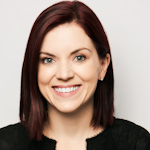Over the past 90 days, I have spent countless hours learning about the “new normal” in the dental office. I have created protocols for compliance and have tried to envision how to optimize my workflow when I return to clinical practice.
While practicing dental hygiene for the last 10 years, I had developed a form of “muscle memory” throughout my clinical day. The once-hard-to-follow procedures became second nature. In much the same way, a year from now we will be adjusted to this new normal. Until then, we must approach each day with a higher level of patience and grace for ourselves and our patients. There will be the same conversations over and over, as well as the same questions. Taking care of ourselves outside of the treatment room will allow us to be better educators, health-care professionals, and difference-makers in our communities.
Commit to eight hours of sleep nightly
Recovery is important for your mental and physical health. Committing to eight hours of sleep is important to allow our bodies to recover from the stresses of the day. Sleeping for eight hours has been shown to have many benefits including improved immune system, improved metabolism, decreased stress, decreased risk of heart disease, improved mood, improved productivity, improved memory, and improved exercise performance.1
Fueling your body
If you didn’t eat breakfast before, you should now. There is increased stress in our environments, both physically and mentally. One of my favorite preclinic breakfasts includes Ezekiel toast, peanut butter, and a sliced banana on top. Getting out of the house can be challenging, especially after our entire household’s routines have changed. Committing to a healthy, high-fiber breakfast will keep our moods balanced and give our brains and bodies what they need throughout the morning. Lunch should also be a well-balanced meal with high fiber, fruits, and veggies to allow us to finish our days strong.
Hydrate, before you are thirsty
I remember my professor on my first mission trip in the hot rolling hills of Romania yelling, “Drink your water before you are thirsty!” When we hydrate our bodies before we are thirsty, we prevent dehydration. Our bodies will be adjusting to the additional PPE and we will be running hotter than ever; therefore, we need to fuel our bodies and hydrate throughout the day to avoid dehydration.
The symptoms of dehydration include flushed skin, dry skin, muscle cramps, fever or chills, craving sweets, headaches, and dark color urine.2 Although there seems to be no medical consensus on what is the exact amount of water you should drink, a common and easy to remember suggestion is to drink an ounce of water for every pound that you weigh.[KB1] If you weigh 150 pounds, that would be 150 ounces a day. You may be wondering how you can drink that much water and not be in the restroom all day. I have found that when I work in hotter environments, much of the water is released through sweating. You can also find a water routine that works for you. It may be difficult to drink in between seeing patients; therefore, hydrating before and after clinical hours is extremely important. You will be surprised at the difference hydration makes.
Electrolytes
I have tried many products for electrolytes during my mission trips over the years. Most of the products I have tried have not been satisfying and often taste horrible. I recently tried Nuun hydration tablets, which come in a variety of flavors. I tested the Nuun Sport in Tri-Berry flavor, which was not only tasty but also provided electrolytes for better overall hydration. One Nuun tablet dissolved in 16 ounces of water supplies 300 mg[KB2] sodium, 150 mg[KB3] potassium, 25 mg magnesium, and 13 mg calcium. Each tablet also contains less than 1 g[KB4] of sugar, fewer than 15 calories, no high-fructose corn syrup, and no artificial flavors or colors. My home testing of the pH was 6.25, which is the highest of all electrolyte products I have tested.
Creating a routine before and after clinical practice will help us to have a better outlook on the chaos that happens at work. When we focus on what we can control, we reduce our stress over those things we cannot control. We have to adapt and adjust as needed to the flaws in our protocols, the unknowns, increased stress of our new normal, and the anxiety of our patients. Taking the time to fuel our bodies and minds is imperative for success in dentistry’s new normal.
References
1. SCL Health. The benefits of getting a full night’s sleep. 2019. https://www.sclhealth.org/blog/2018/09/the-benefits-of-getting-a-full-night-sleep/.
2. George N. 6 unusual signs of dehydration you should know about. June 18, 2020. https://www.everydayhealth.com/news/unusual-signs-of-dehydration/.
Amber Auger, MPH, RDH, is a practicing dental hygienist and clinical innovations implementation specialist. With 14 years of experience in the dental industry, Auger works with practices to provide customized protocols, to refocus on the patient experience, and to utilize systemic approaches to periodontal therapy. She is a regular contributor to RDH magazine, a featured author for DentistryIQ, and host of #AskAmberRDH. Auger also provides preventive services abroad yearly and is always willing to have dental professionals join her team. She can be reached at [email protected].







